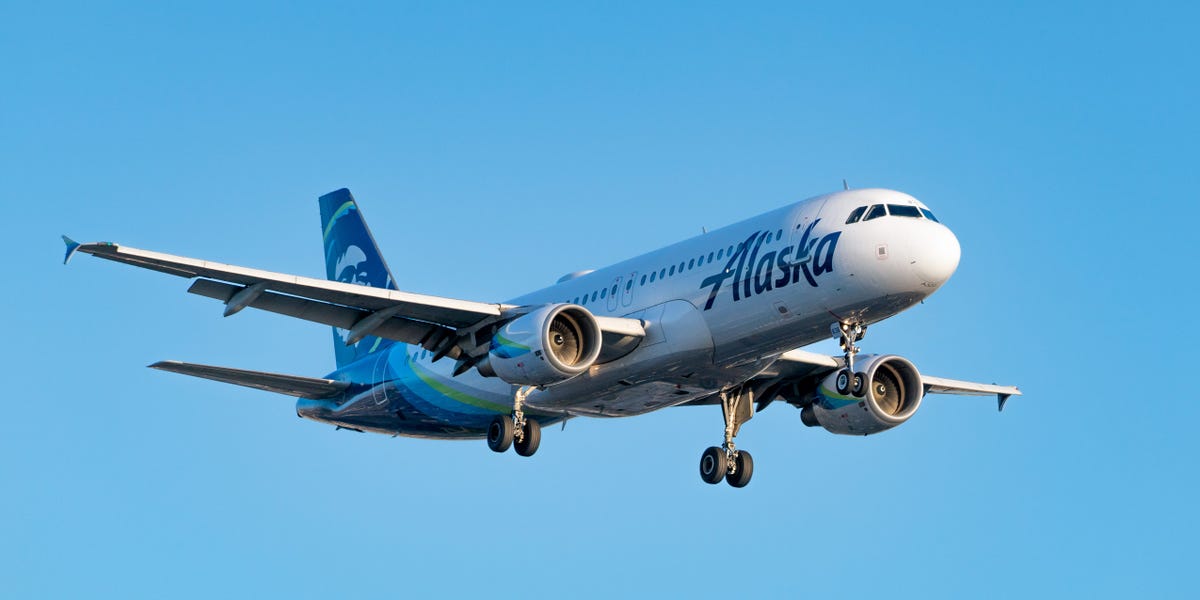- The pilot accused of grabbing two engine shut-off handles mid-flight has spoken out in an interview.
- Joseph Emerson is charged with 83 counts of attempted murder.
- He told The New York Times he was in a hallucinogenic state and pulled the handles to “wake up.”
The pilot charged with 83 counts of attempted murder after grabbing two engine shut-off handles in the middle of an Alaska Airlines flight said in a jailhouse interview that he’s “horrified” by his actions.
Joseph Emerson told The New York Times in an interview from Oregon’s Multnomah County Jail that he had long struggled with mental health issues, had consumed psychedelic mushrooms two days before the October 22 flight, and had believed he was stuck in a hallucinogenic state at the moment he reached up to grab the handles.
“I thought it would stop both engines, the plane would start to head towards a crash, and I would wake up,” Emerson told the Times.
Emerson also expressed gratitude to the pilots who stopped him from pulling the handles and the crew members who restrained him with flex cuffs while the plane made an emergency landing in Portland. Emerson added that even up to two days after his arrest, he still could not tell whether his court arraignment and his attorneys were real.
“I am horrified that those actions put myself at risk and others at risk,” Emerson told the newspaper. “That crew got dealt a situation there’s no manual, checklist, or procedure that’s been written for. And they did an exemplary job keeping me and the rest of the people on that plane safe.”
Federal court records said Emerson also told authorities after his arrest that he was depressed, hadn’t slept in 40 hours, and was having a nervous breakdown. The incident has sparked public criticism over the FAA’s mental fitness regulations, which critics say discourage pilots like Emerson from seeking mental health treatment.
The agency grounds any pilots who report seeking treatment — whether it’s medication or even just therapy — leaving them in limbo and without income for months or years at a time while they undergo the FAA’s psychiatric evaluation process. Though the FAA has approved the use of five common antidepressants for pilots, pilots and aviation experts told Insider the process for getting medical clearance to fly while taking antidepressants was so lengthy and risky that many pilots prefer not to seek treatment at all.
Last week, the FAA announced it will launch a new committee dedicated to “breaking down the barriers that prevent pilots from reporting mental health issues to the agency.”
In a previous statement to Insider, the agency said it encourages pilots to seek treatment for mental health conditions “since most, if treated, do not disqualify a pilot from flying.”
Emerson’s wife, Sarah Stretch, told the Times she had asked her husband previously about seeking medications such as antidepressants. Emerson had refused, saying he didn’t want to risk their livelihood.
“His pilot career was his life,” Stretch said.


